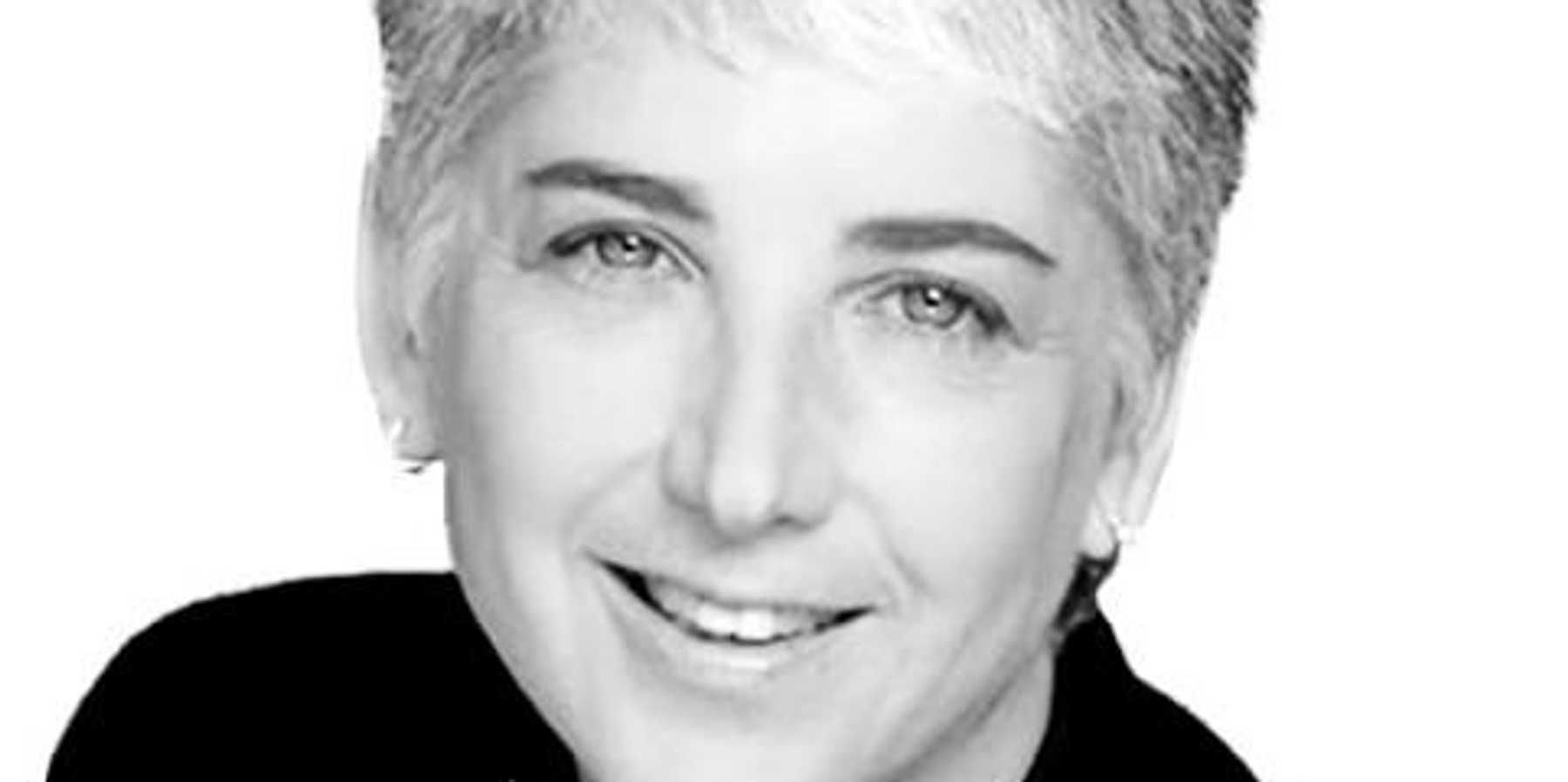

Get in the KNOW
on LA Startups & Tech
XKevin Dooley | Flickr
Italian EV Battery Maker’s CEO Plans Major Gigafactory in Imperial Valley
David Shultz
David Shultz reports on clean technology and electric vehicles, among other industries, for dot.LA. His writing has appeared in The Atlantic, Outside, Nautilus and many other publications.
The founder and CEO of Italian battery manufacturer Italvolt announced plans today for a new $4 billion gigafactory in Southern California’s Imperial Valley that should produce enough batteries to supply 650,000 electric vehicles annually.
Italvolt CEO Lars Carlstrom said he’s formed a new company, Statevolt, that will build the 54-gigawatt-hours (GWh) facility with the help of Controlled Thermal Resources (CTR), a California-based lithium extraction company that will supply the factory’s lithium and geothermal power. Statevolt is still “undertaking due diligence” on the exact location of the facility, which should be “one of the largest” battery factories in North America upon completion, it said.
“The development of lithium-ion batteries is crucial for the U.S. to meet its goals to transition to net zero [carbon emissions],” Carlstrom said in a statement. “Today, we face a significant shortage in the amount of lithium that is required to meet the demand for electric vehicles.”
Carlstrom added that Statevolt’s partnership with CTR is “pioneering a new, hyper-local business model,” which said “will offer Statevolt a significant advantage in producing lithium-ion batteries at scale.” CTR will supply the gigafactory’s lithium from its nearby Hell’s Kitchen Lithium and Power development, which is slated for completion in 2023.
That would give the battery maker an advantage at a time when lithium prices have climbed due to a global supply chain squeeze exacerbated by Russia’s invasion of Ukraine, as well as growing demand for electric vehicles—and, in turn, lithium-ion batteries to power EVs.
Instead of traditional open-pit mining or evaporation ponds, CTR extracts lithium from geothermal brine—extremely hot, salty water located in abundance underneath the Imperial Valley’s Salton Sea. The brine is pumped to the surface and then purified to extract lithium-containing salts. CTR says the process, when done correctly, could have “near-zero” carbon emissions.
From Your Site Articles
- EV Battery Maker Statevolt Is Embracing a ‘Buy Local’ Ethos - dot.LA ›
- Tesla’s Shift to Lithium-Iron Batteries Could Signal a Shift - dot.LA ›
- Tesla’s Shift to Lithium-Iron Batteries Could Signal a Shift - dot.LA ›
- The Lithium Race Takes Shape in the Salton Sea - dot.LA ›
- Statevolt Joins Lithium Race In Salton Sea - dot.LA ›
- EV Hummers Use More Carbon Than Gas Cars - dot.LA ›
- Why Are Lithium Prices Falling? - dot.LA ›
Related Articles Around the Web
David Shultz
David Shultz reports on clean technology and electric vehicles, among other industries, for dot.LA. His writing has appeared in The Atlantic, Outside, Nautilus and many other publications.
Behind Her Empire Podcast: Joan Rosenberg, Ph.D. on Building Confidence That Lasts
06:29 AM | April 15, 2021
On this week's episode of Behind Her Empire, meet Joan Rosenberg, Ph.D., an expert psychologist, best selling author and founder of "Emotional Mastery" and "Emotional Mastery Training," a method for gaining and sustaining emotional strength and confidence. Hear her discuss why the inability to move through and handle unpleasant feelings such as sadness, shame, embarrassment and frustration is a major roadblock in reaching success.
Rosenberg helps her clients with these overwhelming or uncomfortable feelings, and begin to build the self-confidence, emotional strength and resilience needed to lead a highly successful and fulfilling life.
She also discusses the challenge and importance of speaking up, especially for women. Rosenberg believes "the more able we are to put words to our experience, the more authentic we become" and that by being direct in our communication, and being more in touch with our feelings, the closer we can get to success.
"If we try to cut out the unpleasant, we're cutting out half of our life experience — or potentially half of our life experience. And it doesn't allow us to be authentic. The ability to actually experience these feelings — it is our sense of aliveness…because the sense of aliveness to it, it's the thing that actually allows us to connect deeply with ourselves, and ultimately deeply with another person." — Joan Rosenberg, Ph.D.
Joan Rosenberg, Ph.D. is a professor of graduate psychology at Pepperdine University and is a two-time TED speaker with her videos garnering millions of views. She's also been seen on CNN's "American Morning," the O Network and PBS. Her latest book, "90 Seconds to a Life You Love: How to Master Your Difficult Feelings to Cultivate Lasting Confidence, Resilience and Authenticity" was released last year.
Want to hear more of the Behind Her Empire podcast? Subscribe on Stitcher, Apple Podcasts, Spotify, iHeart Radio or wherever you get your podcasts.
Read moreShow less
Yasmin Nouri
Yasmin is the host of the "Behind Her Empire" podcast, focused on highlighting self-made women leaders and entrepreneurs and how they tackle their career, money, family and life.
Each episode covers their unique hero's journey and what it really takes to build an empire with key lessons learned along the way. The goal of the series is to empower you to see what's possible & inspire you to create financial freedom in your own life.
Remote Work Has Become the Norm, but Investors Still Want Their Startups to Have an Office
07:10 AM | August 17, 2020
Photo by Chris Montgomery on Unsplash
Fresh off raising a $7 million seed round in February, Jill Wilson took the first step any founder traditionally takes when launching a new startup: She called up a real estate broker and leased an office.
"I would not have ever considered a remote workplace before," said Wilson, co-founder and CEO of mobile game maker Robin Games. "I was very squarely in the camp that you need to be in the same room to create a great creative product."
Less than a month later, the coronavirus sent Wilson and her team home, where they have been working ever since. Some employees left Los Angeles to be closer to family and live in cheaper cities like Atlanta and New Mexico. "I will never require people who moved away to come back," Wilson said.
Despite being scattered across the country instead of shoulder-to-shoulder in the office they rented on Abbot Kinney, Wilson has been surprised how productive her team has been. "I've done a shocking 180 on this," said Wilson. "I'm a convert to a distributed workforce."
Wilson says it is a big advantage to be able to recruit from a vastly bigger pool of candidates, not just those in Los Angeles or willing to move here. And she says her employees are much happier now that they don't waste time sitting in traffic commuting to Venice, California. "I think that's one of the reasons my team is so efficient, because they can literally roll out of bed and start working," she said.
Startups' early days are usually defined by young and over-caffeinated engineers huddled around monitors, not Zoom meetings and virtual happy hours. Apple, Hewlett-Packard and Google were all famously started in garages. A newer generation of startups launched in co-working spaces, but proximity has always been seen as a crucial ingredient for building a young company.
"Investors have questioned how well a business can find its footing and grow — especially in its early days — without close, personal collaboration among employees," wrote Paul Condra, a lead analyst at Pitchbook, in a research note. "Similarly, as organizations scale, the distributed model is often viewed as an impediment to that growth, which has made it harder for companies using it to raise money. For venture investors, the ability to see a company's physical offices, meet the team and witness first-hand the central hive of day-to-day activity is a key part of regular due diligence."
Nearly all office workers have been forced to work remotely since mid-March, but the transition for young startups has arguably been among the hardest. Whenever the day comes when employees feel safe enough to return, investors interviewed by dot.LA say they still prefer to back companies that have an office.
"You just can't achieve the same level of productivity if everyone remains totally remote," said Mark Suster, founding partner of Upfront Ventures. "When we return to some sort of new normal, whatever that normal is, people are still going to need to congregate in close proximity with each other."
"I'm still of the old school that I like to see a team in the same place to the extent possible. So I'm looking forward to the day when a team can be in the same place," said Eric Manlunas, founder and managing partner of Wavemaker Partners. "There's a lot of positives that come out of that."
When the UK-based startup network Founders Forum interviewed hundreds of founders recently, 63% said what they missed most about the office was spontaneous conversation and collaboration.
Investors agreed that the younger a startup, the more crucial it is for employees to be together. It also is much more important for a founding team who has not worked with each other before to be together. "You need that connective tissue in the early days," said Sanjay Reddy, co-founding partner of Unlock Venture Partners.
However, just because offices are still important does not mean that things will ever go back to the way they were before the pandemic. "I do believe the genie is out of the bottle," said Reddy. "I don't think we're going back to the office full time ever again."
Nearly half of organizations with office space say they expect to reduce their physical office footprint as a result of the coronavirus, and more than 20% expect to reduce it by more than 25%, according to S&P GLOBAL. The new normal for startups will likely include a degree of remote work and more openness to hiring employees who don't want to live in high-priced cities.
"I don't think any company is fully ready to embrace fully remote yet because so much is unknown," said Matt Hoffman, a partner and head of talent at M13. "But we see companies that were very reticent to have anyone work remotely, and now they're taking some steps to see what works well. No one should go from zero to 60 overnight."
Condra, the Pitchbook analyst who studies workplace trends, says the real test of remote work will be when it is viewed not as an accommodation, but as a benefit. He is curious to see if a venture fund will specifically target fully remote companies because they view them as a competitive advantage, but he has not seen any doing that yet. It seems that for all the reasons workers do not miss offices: traffic clogged commutes, annoying co-workers, sad desk lunches – most companies still view the benefits of offices outweighing their cost.
"Is there a tipping point where a company comes along and says, 'We can do better if we're distributed than we can do in an office'?" asked Condra. "Once that is proven, the model will become mainstream."
The list of successful fully remote startups is a short one. But Gitlab, which is valued at $2.75 billion and employs 1,200 people in 67 countries, all of whom are remote, is invariably at its top. Whether the company is a one-off, largely because of the remote-friendly nature of its business – providing software for developers – remains to be seen.
"A lot of people like going into the office to focus on work," said Hoffman. "I don't think that will ever go away."
Even Wilson is not ready to go fully remote. She is keeping Robin Games' Venice office in the hope that some of her team can eventually return there for meetings and brainstorming sessions. Even though she is allowing employees to work from anywhere indefinitely, she sees a symbolic importance to maintaining a physical headquarters with her company's logo on the front door.
"It's nice to have roots," she said. "We want to have a base for our company."
From Your Site Articles
- Column: Adjusting to the New Normal When Office Life Resumes ... ›
- Microsoft CEO Isn't Convinced of Working From Home Future ›
- How to Build Company Culture in a Work-From-Home World - dot.LA ›
- How Working From Home Challenges Women and How To Succeed ... ›
- Nearly Half of Employees Want to Continue to Work From Home ... ›
- Unlock Venture Partners' Sanjay Reddy on Video's Possibility - dot.LA ›
- LA’s Head of IT Speaks on Permanently Embracing Remote Work - dot.LA ›
- Tango Raises $5.7M to Solve Companies' Productivity Problems - dot.LA ›
- Unlock Ventures Launches $60 Million-Plus Seed Fund - dot.LA ›
- The Remote Work Model Is Here to Stay - dot.LA ›
- The Remote Work Model Is Here to Stay - dot.LA ›
Related Articles Around the Web
Read moreShow less
Ben Bergman
Ben Bergman is the newsroom's senior finance reporter. Previously he was a senior business reporter and host at KPCC, a senior producer at Gimlet Media, a producer at NPR's Morning Edition, and produced two investigative documentaries for KCET. He has been a frequent on-air contributor to business coverage on NPR and Marketplace and has written for The New York Times and Columbia Journalism Review. Ben was a 2017-2018 Knight-Bagehot Fellow in Economic and Business Journalism at Columbia Business School. In his free time, he enjoys skiing, playing poker, and cheering on The Seattle Seahawks.
https://twitter.com/thebenbergman
ben@dot.la
RELATEDTRENDING
LA TECH JOBS


